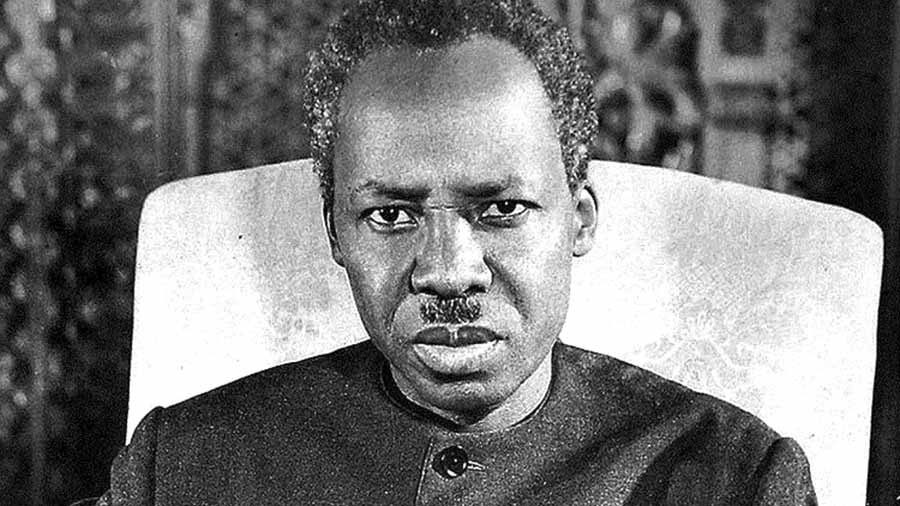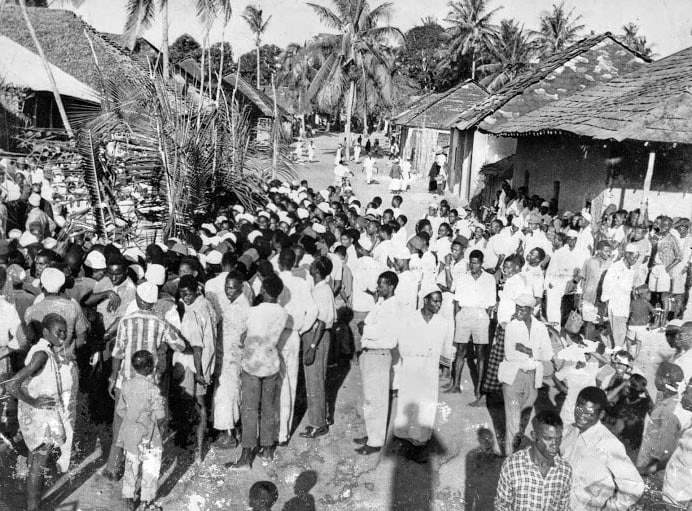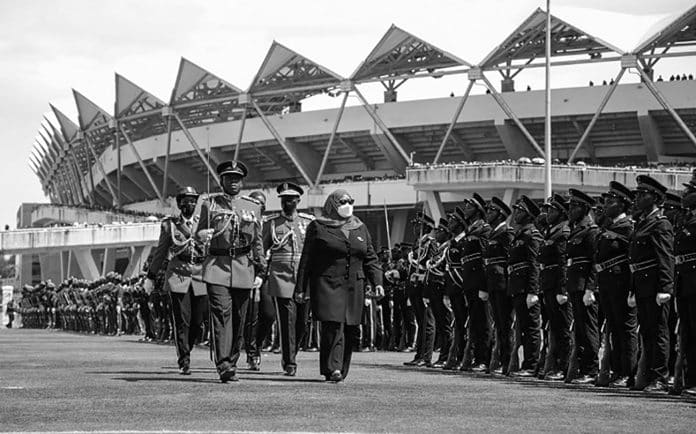Tanzania Independence Day 1961 – History, Observe, Timeline and More
When is Tanzania independence day and year? Annually on the 9th of December, the country commemorates Tanzania Independence Day, the day which the nation got its independence from the colonialists. Tanzania will celebrate its 61st year of independence from Great Britain, which ruled the country as Tanganyika until 1961.
History of the Tanzania Independence Day
Tanzania’s independence campaign began in 1954, and Julius K. Nyerere, co-founder of TANU Tanganyika African National Union], was at the helm. He was trained in Scotland and Uganda, and when he returned home from Uganda, he began speaking his anti-colonialist ideas\Africanist political ideology. He was motivated by Mahatma Gandhi’s nonviolent freedom struggle in India and called for a similar campaign in Tanganyika. He played a key role in bringing together different tribal groupings across the region to form a united force against Great Britain until Tanzania’s Independence day.
Nyerere, recognized as a teacher or Swahili for ‘’Mwalimu’’ due to his teaching background, was nominated to the General Assembly in the general elections of 1958–1959 and became the 1st Head of State of a free Tanganyika in 1961. After overthrowing the Ruler of Zanzibar, it established a Republic the following year and joined with Zanzibar at the beginning of 1964. That’s when the nation’s name was changed to Tanzania.
He also was a socialist who established state-owned service programs and community-owned farm policies. He would become the first African ruler to voluntarily step down from office after his plans to make Tanzania self-sufficient failed. Because of his moral principles, he is still regarded as a respected personality in the region for his role in the Tanzania Independence day.
In fact, the governing party, ”Chama Cha Mapinduzi,” is a continuation of TANU, which combined with the Afro-Shirazi political party of Zanzibar to form the country’s only ruling party. The majority of the Zanzibar islands is currently a semi-independent province of Tanzania, with a banner that is a version of Tanzania’s flag.

Timeline of Independence Day in Tanzania
| 1919 |
| Britain takes over Tanganyika. |
| Tanzania’s region had been under German authority since the late 1900s, and following the Versailles treaty, it was handed down to the United Kingdom, Portugal, and Belgium. |
| 1954 |
| Tanzania’s Independence Day Campaign is born. |
| After Julius Nyerere’s endeavors to unite the region’s diverse tribes flourished, the TANU [Tanganyika African National Union] was created to fight for full sovereignty. |
| 1959 |
| TANU Establishes its Government Under British Rule |
| TANU wins all of its seats in the 1958–1959 general elections. It is deservedly on its way to demanding independence from the United Kingdom, which is granted shortly after. |

| 1964 |
| Tanganyika Became Tanzania |
| The Zanzibar Revolt of 1964 deposed the Sultan and his predominantly Arabic government, and the country acquired its current name when it unified with Tanganyika. |
Frequently Asked Questions About Tanzania Independence Day
On Independence Anniversary, what exactly do Tanzanians do??
A presidential address on the history of Tanzania Independence Day is delivered in Dar-es-Salaam, the country’s main city and financial center. A military exercise and musical performances are also held in the arena in Dar es Salaam.
Is it true that Tanzania gained independence after its neighbors?
Tanzania gained its independence at the very same time as other Belgian and British colonies. The DRC and [Burundi, Rwanda, and Uganda] obtained autonomy in 1960 and 1962, respectively.
Was the United Republic of Tanzania among the last British colonies to declare independence?
Certainly not. Brunei was a British territory until 1984 when it attained independence.
How to Participate and Enjoy During the Time of the Year When is Independence Day in Tanzania
- Learn About Tanzania’s History
The Territory has a rich history that dates back to the old Stone Age, and it is a dwelling place for some of the earliest great apes communities discovered by archaeologists. It recorded travels from India and Persia as early as the 1st millennium CE, and Swahili culture was intermingled with Arabic influences during the medieval period. All of this makes for the fascinating history of Tanzania’s Independence Day.
2. Speak to a Tanzanian
It’s not simply the region’s history that’s fascinating. Tanzanians nowadays speak a variety of East African languages. Tanzania’s GDP was upgraded by the World Bank from low to lower-middle-income classification in 2020. It has recently elected its first female leader, who was born in Zanzibar to a Muslim family. Speaking with a Tanzanian about how the nation is doing will provide you with a bird’s-eye view as well as firsthand knowledge of Tanzania’s Independence Day.
Tanzania has long been known for its natural wonders, including the Serengeti Natural Reserve, which shares the Masai Mara antelopes migration with Kenya, and Mt Kilimanjaro, Africa’s highest summit. If you’ve only heard about these famous destinations and are considering where to spend your next holiday, now is your opportunity to experience them for yourself by visiting Tanzania.
Tanzania’s 5 Most Intriguing Facts
- Tanganyika is the 2nd-oldest lake.
Africa is blessed with Great Lakes, such as Lake Malawi and Victoria, as well as Tanganyika, which is the world’s 2nd-oldest freshwater lake, as well as the 2nd-largest in terms of depth and volume.
2. Tanganyika spreads across the Territory
The Great Lakes area is also known as Africa’s central belt, and The DRC, Burundi, and Zambia share Tanganyika’s lake.
3. Jane Goodall carried out research work on chimpanzees in Tanzania
Jane Goodall, a renowned anthropologist, and primatologist studied chimps in Gombe Stream Nature Reserve.
4. Tourism is an influential contributor to the economy
Agriculture is the country’s largest industry and employer, although tourism is a very close 3rd, representing 17.5 percent of GDP in 2016.
5. There are 4 linguistic families spoken here.
Tanzania, the continent’s most linguistically diverse country, is home to all four African linguistic families: Bantu, Nilotic, Cushitic, and Khoisan.
Why is Tanzania Independence Day Celebration Important?
- It serves as a reminder of the colonial era.
Tanzania’s Independence Day is a reminder of the British Empire’s huge size and the number of nations it colonized. In 1776, the 13 American Countries of the United States became the first to declare independence from the British.
2. It’s a pretext to travel to Tanzania.
Tanzania is a terrific place to visit during any time of year since it has so much wildlife and topographical diversity, from volcanoes to the Great Lakes. Tanzania’s Independence Day is only a convenient excuse to book those plane tickets.
3. It is the result of the merging of two distinct regions.
Tanzania was formed when Tanganyika’s mainland and Zanzibar’s island archipelago combined. Tanzania’s Independence Day honors the coexistence of both of these regions, with Zanzibar having its own unique culture and a degree of sovereignty from the mainland administration.
Dates of Independence Day of Tanzania – Yearly
| Years | Dates | Days |
| 2022 | The 9th of December | Friday |
| 2023 | The 9th of December | Saturday |
| 2024 | The 9th of December | Monday |
| 2025 | The 9th of December | Tuesday |
| 2026 | The 9th of December | Wednesday |
Happy independence day Tanzania!
For more articles on public holidays click here!




























